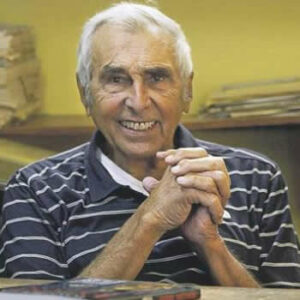
Tony Bouza
By Tony Bouza
Erica, telling me a friend of ours—educated and sophisticated—had consulted a psychic, set me to thinking—after overcoming nausea.
Psychics are clever scoundrels, preying upon our gullibility using their study of human nature. They observe the external (appearance, body language, etc.) and exploit our hopes and dreams. With men it’s sex, power and money; with women, nurturing and safety. Psychics are often thieves—as well as liars. Card and palm readers fall into the genre.
Prophecy is the divination of God’s will. But it gets expressed in quotidian pursuits too.
The Bible offers a creation vision that has not been furthered by evolution. Parting the Red Sea is not totally credible, nor is the delivery of the Ten Commandments by a burning bush.
The human clings to beliefs. They are comforting. Our only defenses are logic and science. What is the evidence? Who can provide sensible answers?
The Greeks offered a very valuable approach—question. Start within. Be merciless in your introspection.
And we look for prophets.
Where are we headed? What will befall us? We want answers.
The best answers are extrapolations of the knowns. So the best prophets are those who understand us, our times and the surrounding circumstances. Once expressed, the views of these prophets become central to understanding ourselves, our times and probably where we’re headed. This is the only sort of prophecy that has any value.
So who is best positioned to offer reasoned, informed guesses as to who we are and where we are headed?
The artist.
The intelligent, observing, informed analyst—who must find expression for their findings is the true prophet!
And who is at the epicenter of this conundrum?
Well, we are fortunate indeed to be trading with that genius’ currency—English.
That creature is William Shakespeare (and I hope, fervently, not the Earl of Oxford).
Review his works.
A cursory glance helps us understand ourselves through the speculations of an indecisive Hamlet. A foolish, seductable parent in Lear, an unwise lover in Othello, unwitting enabler of tyranny in Caesar and anti-Semitism in The Merchant of Venice. Evil ambition in Macbeth, the villainous courage of Richard III, the Knute Rockne halftime pep talker of Henry the V at Agincourt. The agonies of parenthood of Henry IV and the frivolity of hedonism of Falstaff. The corruption and homosexuality of Richard II. The futility, tragedy and stupidity of feuds in Romeo and Juliet. Lust and its horrible consequences in Titus Andronicus.
On and on.
The wisdom pours forth and enables us to understand this complex world around us and ourselves.
We are a practical people. “What good is it?” is our national motto. Fair enough.
Exposure to these thinkers informed my actions as an executive. My only tools were other humans, and if I didn’t understand them or couldn’t move them to act, I’d failed.
Ezra Pound—a crazy, fascist, anti-Semitic poet—said, “The artist is the antennae of the race.” The collector of the filaments in the air—a sort of philosophical magnet. By conveying their findings, the artist—through books, films, plays, poetry, music and such—becomes the prophet who guides us through this labyrinth we call life. I dread to think where we’d be without them, but the Bible, once again, provides insight—“The prophet is not without honor, save in his own country.”
Amen.






















